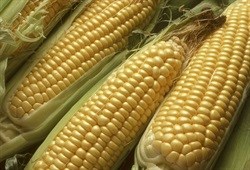
Top stories

Energy & Mining#MiningIndaba: How GenAI is reinventing mine maintenance in South Africa
Maroefah Smith 2 hours





More news












The study was conducted by researchers from the universities of Cape Town, Venda and Fort Hare and tabled in parliament by the financial and fiscal commission.
The researchers studied household vulnerability to climate change in Nkonkobe in Eastern Cape and Thulamela in Limpopo.
Most of the 4000 households studied were involved in subsistence farming and no commercial farmers were surveyed.
Using a "household vulnerability index" which measures a household's ability to withstand disasters associated with climate change, such as drought or flooding, the study found that peoplein Eastern Cape would bemore vulnerable than thosein Limpopo.
A climate change impact model predicted that average maize yields in Eastern Cape would decline by 8%-15% until about 2050 and after that by 6%-14%.
In Limpopo, maize yields could potentially increase by around 13% initially, but were predicted to decline by up to 19.6% after 2050.
The study found that those with the least financial, social and physical assets would be hardest hit.
However, more male-headed households (17%) than femaleheaded ones (15%) were classified in the highest vulnerability categories. Almost a quarter of maleheaded households in Limpopo fall into this category, compared with 9% in the Eastern Cape.
Bongani Khumalo, the acting chairman of the commission, said that the study had also provided "a cost benefit analysis of different interventions" which could provide some protection for these households.
"If our agricultural choices are not informed we might continue in the direction we are going without generating any value," he said.
In Eastern Cape, rain-fed sorghum would give the greatest return on investment - R1.93 for every R1.00 spent - while in Limpopo irrigated sorghum would yield R2.06 for every R1 spent.
Source: The Times

For more than two decades, I-Net Bridge has been one of South Africa’s preferred electronic providers of innovative solutions, data of the highest calibre, reliable platforms and excellent supporting systems. Our products include workstations, web applications and data feeds packaged with in-depth news and powerful analytical tools empowering clients to make meaningful decisions.
We pride ourselves on our wide variety of in-house skills, encompassing multiple platforms and applications. These skills enable us to not only function as a first class facility, but also design, implement and support all our client needs at a level that confirms I-Net Bridge a leader in its field.
Go to: http://www.inet.co.za